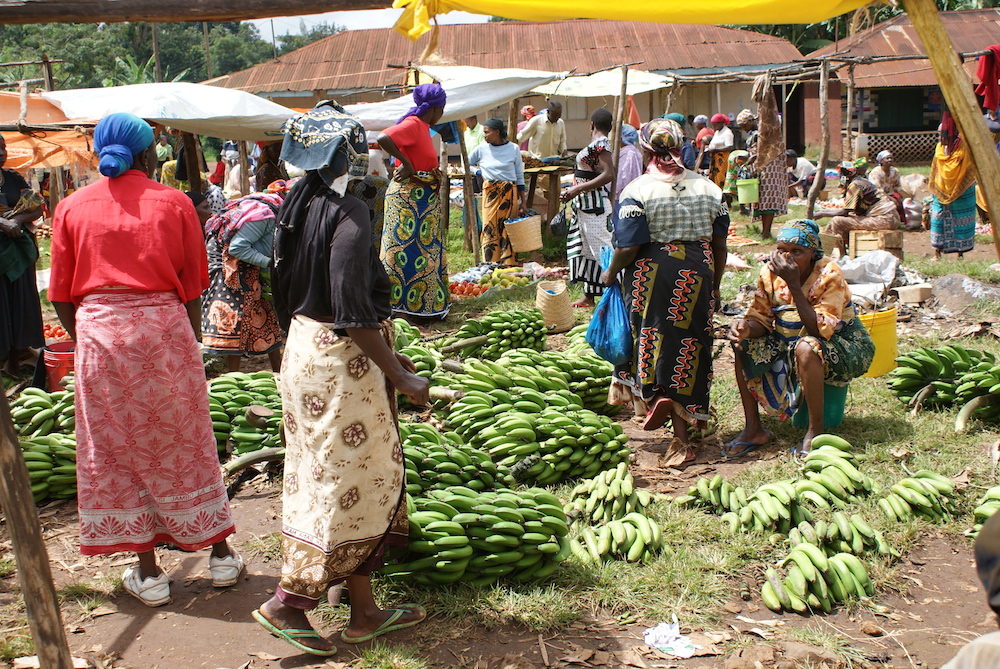What the world needs to know about African enterprise
Ahead of the 2016 Sankalp Africa Summit in Nairobi, Kenya next week, Pioneers Post and the Sankalp team spoke to the founders of four ventures based in the continent to find out: ‘What does the world need to know about African enterprise?’
High number of funds, but impractical mandates
Sun-Culture is a business that designs and sells solar powered irrigation systems and agricultural extension services that make it cheaper and easier for farmers in East Africa to grow high-value fresh fruits and vegetables.
Co-founders Samir Ibrahim and Charles Nichols founded the business, which is headquartered in Kenya, in 2013.
Ibrahim offers his take on what the world ought to know about African enterprise. “This isn’t Europe and this isn’t the U.S. Solutions for Africans are not going to be developed in nice buildings in New York or London.
“It’s a very interesting scene right now. There are a lot of funds and donors putting money into sustainability in Africa, which is fantastic, and Nairobi is at the centre of all this activity.
“But what we’re seeing is that a lot of the Limited Partners (LPs) of the funds being set up in Africa have not spent time in the places they wish to allocate capital. This is not a good thing. When a fund is created, investors create an investment thesis and then a mandate is set outlining future investment parameters – how much each deal will be, what sectors they will invest in and what impact they will achieve. These parameters are being set by people who do not have much experience on the ground so the negotiation is happening without full understanding.
“What that translates to is a lot of money coming into the space, but with impractical restrictions. This is further exaggerated because most of the limited partners investing in impact funds are the same, which means we have a high number of funds that have the same, impractical mandate.”
Listen and think long-term
Kigali Farms was founded in 2010 by Laurent Demuynck to “teach farmers how to grow mushrooms so they get good quality food to eat and sell, and at the same time make some money”. Kigali Farms is now the largest supplier of fresh mushrooms in Rwanda.
Demuynck explains that mushrooms are both highly nutritious, helping to reduce malnutrition, and “an excellent fit for Rwanda” agriculturally.
“Mushrooms are the ‘meat of the vegetarians’. They have 30% protein and contain all the essential amino acids that the human body cannot synthesize (i.e. those that need to be obtained from diet).
“The require very little land and yet can produce high yield. Less than an half an acre of land can yield 230 tons of mushroom – it can become a mini-cash crop without the farmer having to make any changes to current land,” he says.
Sometimes well intentioned aid really ruins things.
Demuynck was the CEO of a high-end microbrewery in New York, before moving to Rwanda in 2010 to launch Kigali Farms. After finding it "very difficult to work with" mainstream banks, Demuynck admits he "almost gave up" the struggle to get the enterprise off the ground.
He continues: "Finally, I got my break. Through Intellecap’s Impact Investment Angel Network (I3N) we managed to secure funding... Not only did we get funding but we found a partner that was enthusiastic about the project, shared our vision and passion. With this funding we were able to unlock more, including a bank, and are now building a factory and diversifying into button mushrooms."
So, what does the world need to know about enterprise in Africa?
“I think people who come to Africa, need to listen more… businesses have their own way of operating here which must be respected rather than imposing Western standards.
“Sometimes well intentioned aid really ruins things. With oyster mushrooms there was so much potential but the pricing structure is a mess. Historically, aid was given to farmers to grow mushrooms but no thought was spared for post-harvest issues such as cold storage facilities or a centralized buying mechanism (like what we offer our growers now).
“The predictable result was producers rushing to market with a perishable product, competing the only way they knew – on price – and hence a buyer’s market with prices too low to allow primary producers to accumulate profit and reinvest.
“Rather than aid in Africa, the opportunity is to use business, create value-chains creating great impact and earning money in the process.”
Educating entrepreneurs in Tanzania
EA Fruits Farm is on a mission to reduce the estimated 4.5 million tonnes of annual fruit and vegetable waste in Tanzania. It’s director Elia Timotheo explains: “A huge amount of fruit and vegetables goes to waste due to lack of storage facilities...The other problem is poor quality.
“We are solving these two challenges by buying from smallholders at fair prices and utilising cold storage facilities to increase the shelf life of produce… Our company is also putting a lot of effort in capturing the urban market, where people have high purchasing power and can easily access internet-first solutions. We are currently developing an online platform for selling our fresh produce.”

Fruit market in Tanzania. Photo credit: Kezee
Timotheo describes the entrepreneurial community in Tanzania – entrepreneurship is “not yet booming, just rising,” he says.
“A few years ago, in international entrepreneurship platforms, you would see very few Tanzanian companies, only one or two, compared to so many companies from Kenya. Now, where you get 10 Kenyans, you get at least three Tanzanians, so the ratio is going up!
“Local people, before, were not educated in a way that they could run companies. The model of education in the past was meant to get people employed. The spirit at the moment is that once they finish school students can start employing themselves and that’s why the number is rising,” Timotheo concludes.
Tackling misperceptions
In 2013 Luke Kyohere and Dan Kleinbaum launched Beyonic – a Ugandan based business that aims to eliminate dependency on cash by helping businesses quickly set up and manage mobile money payments.
Kyohere, who is from Uganda, explains: “A lot of Africa uses cash, which doesn't allow people to save or to become part of the formal economy. It’s also insecure and costly. Mobile money for person-to-person payments is really taking off, but businesses are not using these systems. We make it easy for a business to pay people using these existing mobile money systems, instead of using cash.”
Kleinbaum, who is from the U.S., recalls a moment in the businesses journey where the stark misconceptions about doing business in Africa were made clear. “We were in Texas pitching the idea, before Beyonic was a solid business… it was a room probably with 50 people, and after we got through our 10-minute pitch, this guy says: ‘Aren’t there people with guns and stuff over there trying to keep you from doing business?’
“But it’s one of the reasons why there is so much opportunity – the level of ignorance in terms of how things operate. There are 700 million mobile handsets on the continent. If you’re talking about infrastructure to build any type of service on, it’s better than perhaps anywhere, with the exception of China and India… 80% of Ugandans have mobile phones and 60% have mobile money accounts – that’s something that western investors are just starting to figure out.”
This article was co-written by Anna Patton, Sheena Raikundalia and Ellie Ward.
The third annual Sankalp Africa Summit, which is powered by Intellecap, takes place in Nairobi, Kenya between 24-26th February. To find out more, please click here.
Header image: Nairobi, Kenya Photo credit: Sylvain Friquet



